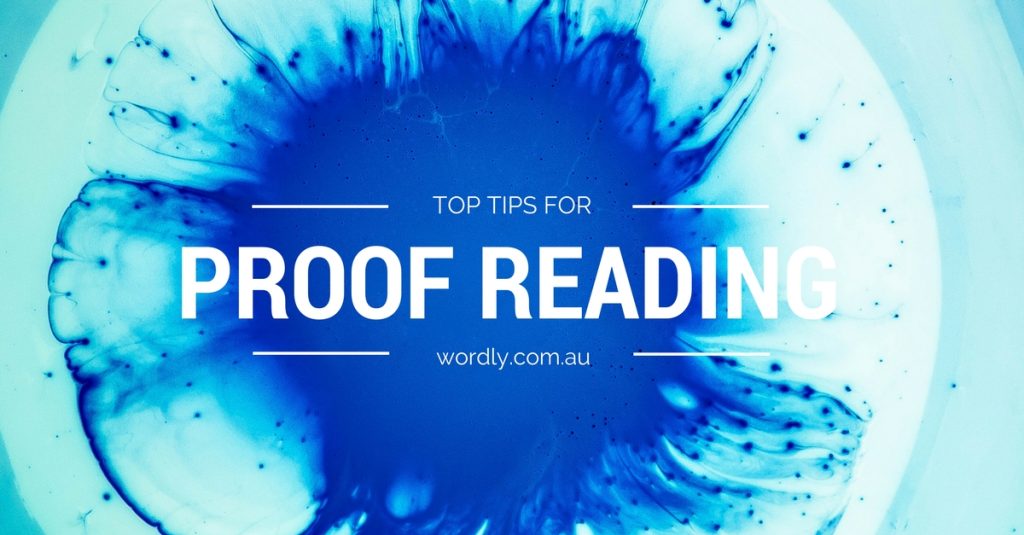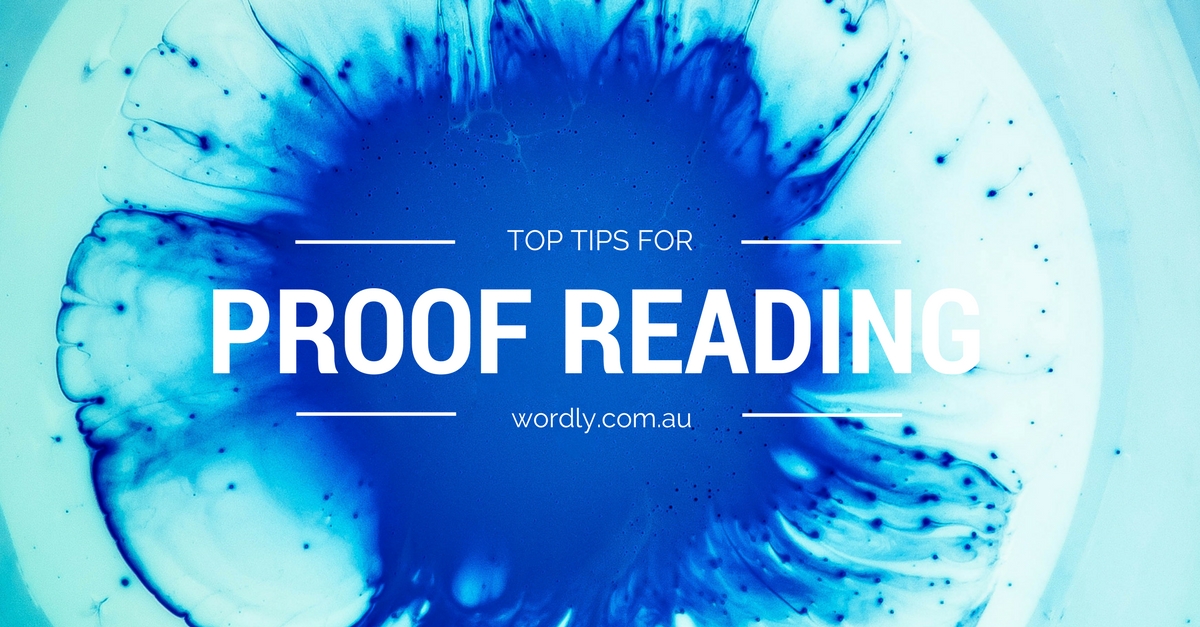Every writer out there hates proofreading. It’s probably the least enjoyable part of the job. Research is enlightening; you get to learn new things. Plotting and planning is quite enjoyable; you get to mould your newfound knowledge into an attractive little sculpture. And writing is fun because, well, you’re a writer—you love it!
Unfortunately, proofreading is part of the trade. Kerouac may have smashed out On the Road in one manic burst, but his contemporaries maintain that he gave that ream of butcher’s paper a good edit.
So, if you have to proofread, you may as well be good at it. The truth is, if you neglect your proofreading, you’re likely doing a disservice to the writing you’ve just slaved over.
So, here a few tips to keep in mind for your next proofreading session.

Do the First Read Yourself
If you have a ridiculously amazing contract where all you have to do is write—and someone else does all the proofreading for you—well done! Even if you are one of these blessed individuals, you should still do a proofread before anyone else sees it. Take pride in your work and get it as close to perfect as you can before you send it out into the world.
Let it Breathe
Like a fine wine, the true notes of a piece will only emerge over time. If you try to proofread your work as soon as you have punched out the last full stop your head will be muddled. You’ll miss every mistake, mistype and clunky sentence. Only proofread when you are fresh and have slept on the piece.
Break it Up
It’s a good idea to have a bit of a game plan when you’re about to undertake a proofread. You can do this by breaking up your task into more manageable pieces.
For example, during the first read, you could be on the lookout for syntax. During the second read, you could look for word choice, on the third check your spelling and the fourth check the punctuation.
You’ll be amazed at what you can find if you’re only looking for one thing. After all, tuna fishermen aren’t sent out to catch rockling or barramundi, are they?
Print and Perform
Maybe it’s a bit old-fashioned, but sitting there with a printout and a red pen is a far more efficient way of proofreading than reading off a computer screen.
The best way to find all those little hidden errors is to run your pen along each line and slowly articulate each word aloud. Do this three times and then read the entire thing backwards once, so you can interrogate each word out of its context.
Become an Expert
If you’re going to be a proficient proofreader you need to be an expert in all elements of the art. That means reading up on grammar, punctuation and appropriate styles.
Keep reference books next to your desk so you can look up any mistakes you make and memorise the corresponding rule.
English isn’t exactly renowned for it’s hard and fast grammar rules, but you can still learn a lot by consulting that book of grammar you haven’t read since grade three.
Know Your Weaknesses
As you proofread your work, you’ll start to notice trends in the mistakes you make. You might continuously misspell a word, make a grammatical error or omit a crucial piece of punctuation.
Make a note of this mistake and make an effort to address it. If you keep up this process, you will get to the point where you make very few mistakes on your first draft, and the entire process will become much quicker and easier.
Look Up Technical Terms
Writers often make the mistake of assuming that the red squiggle underneath that scientific or technical term is only there because it isn’t in Microsoft’s dictionary. Never assume. Always look up the term in question and make sure you have spelt it correctly.
It may not seem like a big deal to miss an ‘l’ in holocrystalline, but that geological magazine you pass the piece on to will notice your mistake in a second.
Remember, It’s More Than Just Body Copy
A lot of writers hand in a piece where the introduction and all the paragraphs are entirely error-free only to realise that there is an error in a title or the header. Check every bit of text on the piece and make sure there are no errant letters.
Change Your Mindset
If you view the proofread as a horrible little slice of your job that you have to trudge through, not only will you spend a lot of your writing career in a foul mood, you’ll also stymie your progress. You should view proofreading as a process of improvement, not as a chore.
Ernest Hemingway admitted, ‘The first draft of anything is !@#$.’ If a Nobel-prize winning laureate valued the merits of a good proofread and edit, then so should you.



